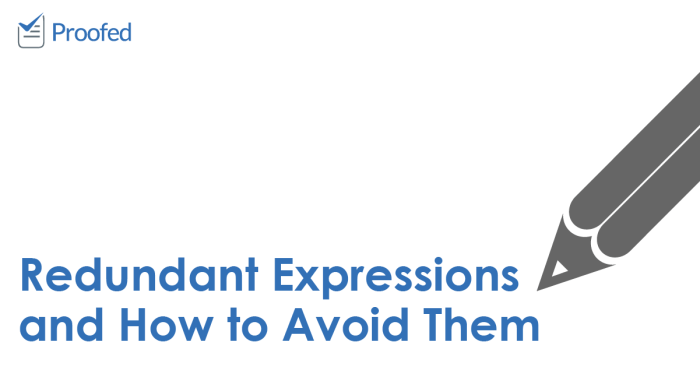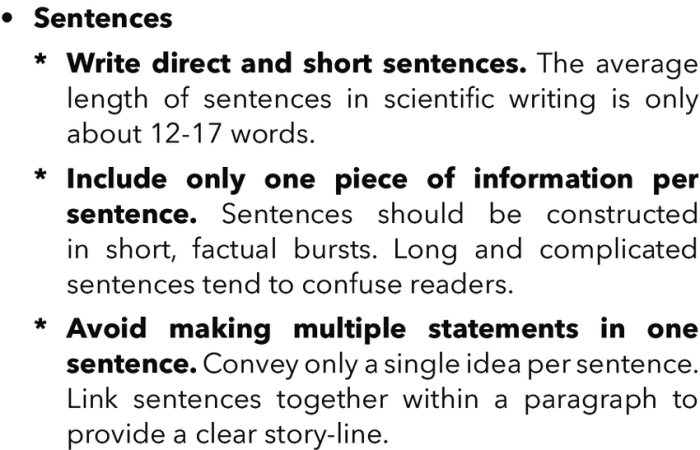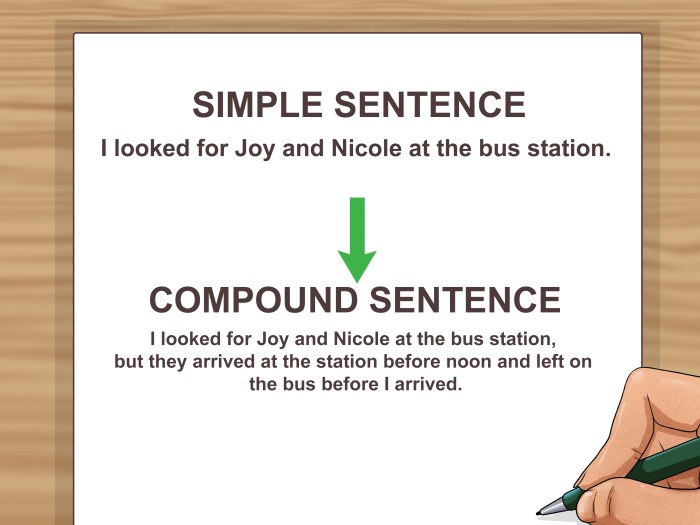Which sentence avoids redundant expressions – The use of redundant expressions in writing can significantly hinder clarity and conciseness. This article explores the concept of redundant expressions, their negative impact, and effective techniques for identifying and eliminating them from written communication.
Redundant Expressions: Which Sentence Avoids Redundant Expressions

Redundant expressions are phrases or clauses that unnecessarily repeat the same idea, resulting in verbose and imprecise writing.
Using redundant expressions can negatively impact writing by making it:
- Unclear:Redundancy obscures the main message and confuses the reader.
- Wordy:Unnecessary repetition increases word count without adding value.
- Ineffective:Redundancy weakens the impact of the intended message.
Identifying Redundant Expressions
Common redundant expressions include:
- Due to the fact that
- For the purpose of
- In order to
- Repeat again
- Very unique
To recognize redundant expressions in sentences, look for phrases that:
- Convey the same idea multiple times
- Use unnecessary modifiers (e.g., “very unique”)
- Add no additional information
Eliminating redundant expressions involves:
- Conciseness:Remove unnecessary words and phrases.
- Precision:Use specific and exact language.
- Clarity:Ensure that the message is clear and unambiguous.
Rewriting Sentences to Avoid Redundancy
| Original Sentence with Redundant Expression | Revised Sentence Without Redundancy | Explanation |
|---|---|---|
| Due to the fact that the weather was bad, the game was postponed. | Because of the bad weather, the game was postponed. | Removed “due to the fact that” and replaced it with “because of.” |
| For the purpose of clarity, I will repeat again the main points. | For clarity, I will repeat the main points. | Removed “for the purpose of” and “again.” |
| The student is very unique in his approach to learning. | The student has a unique approach to learning. | Removed “very” as “unique” implies exclusivity. |
Benefits of Avoiding Redundancy, Which sentence avoids redundant expressions
Avoiding redundancy in writing offers several benefits:
- Improved Clarity:Eliminating unnecessary words enhances the clarity and precision of the message.
- Increased Engagement:Concise writing keeps readers engaged and prevents boredom.
- Enhanced Writing Style:Redundancy-free writing demonstrates strong writing skills and attention to detail.
Tips for Avoiding Redundancy
- Use active voice instead of passive voice.
- Choose precise and specific words.
- Eliminate unnecessary modifiers.
- Proofread carefully for repetitive phrases.
- Use a thesaurus to find synonyms and avoid overuse of certain words.
Question Bank
What are redundant expressions?
Redundant expressions are phrases or words that convey the same meaning multiple times, resulting in unnecessary repetition and verbosity.
Why should I avoid using redundant expressions?
Redundant expressions weaken writing by making it less clear, concise, and engaging. They can also create a sense of carelessness or lack of attention to detail.
How can I identify redundant expressions?
Look for phrases or words that repeat the same idea or meaning. Consider if the sentence would convey the same message without the redundant expression.
What are some tips for avoiding redundant expressions?
Use active voice instead of passive voice, choose precise and specific words, and eliminate unnecessary modifiers.

